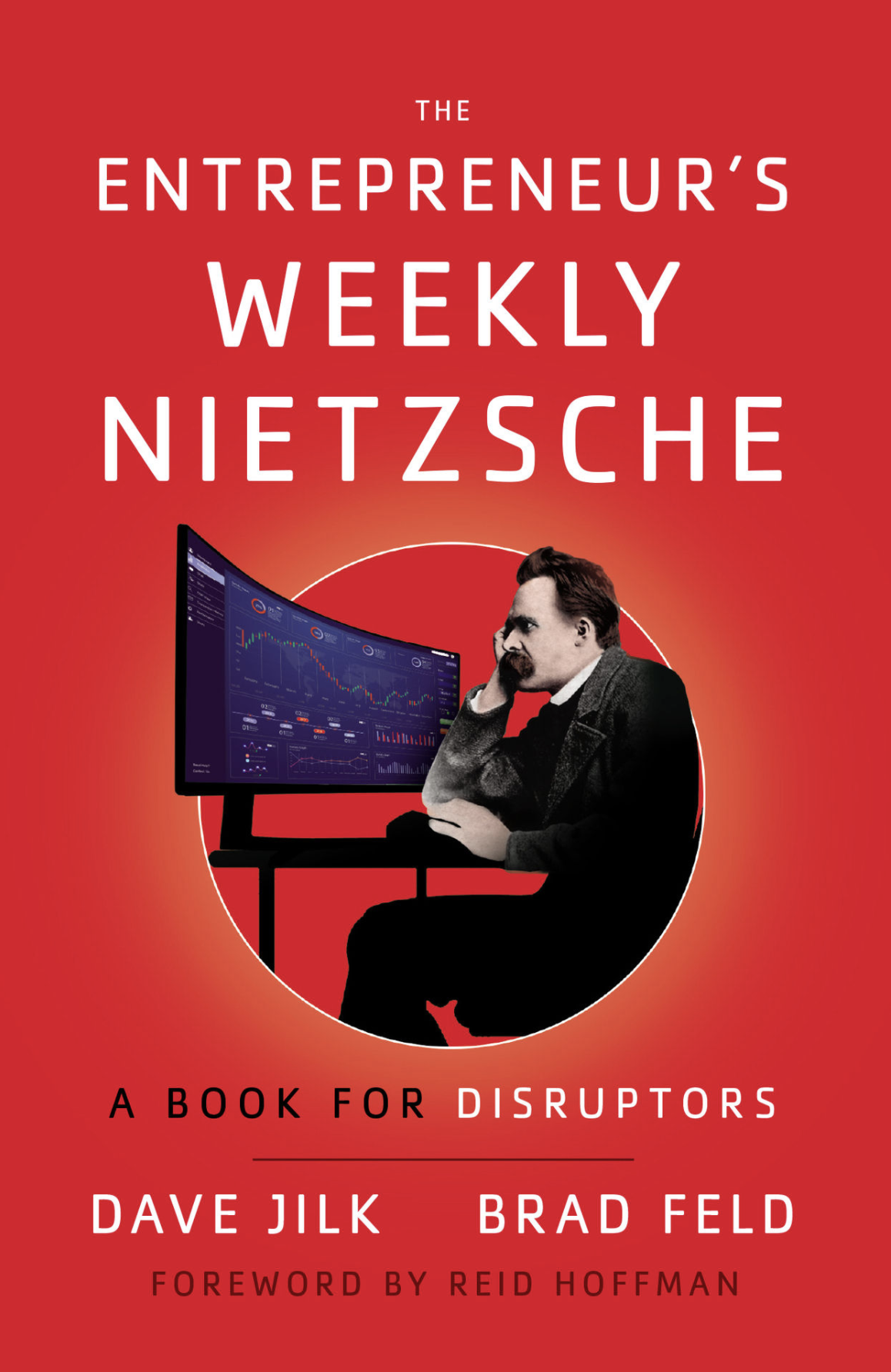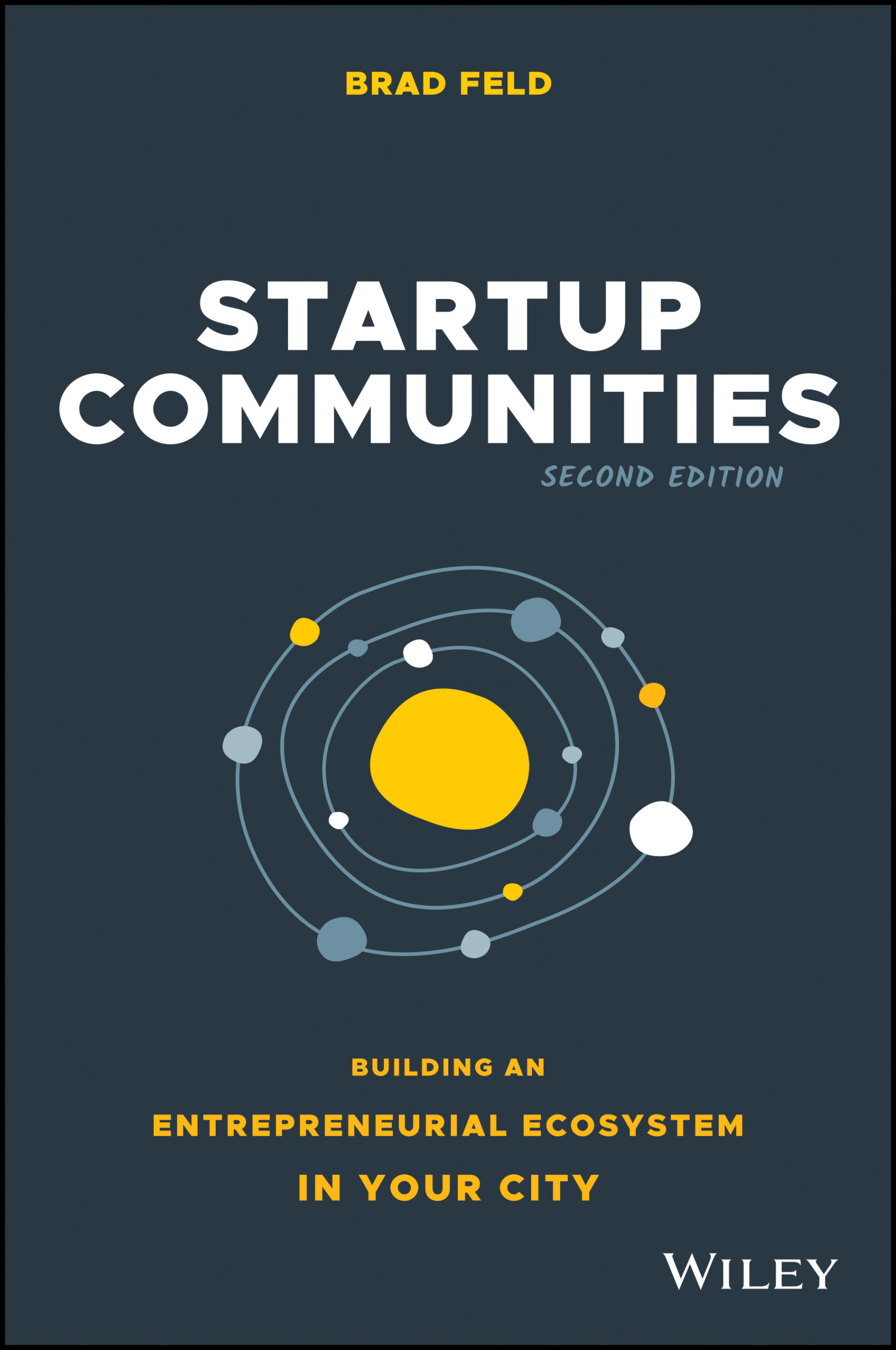Asking The Right Question: How Can a City Create an Environment Where Startups Thrive?
Gulp. I’ve finally come up for air after finishing Startup Life: Surviving and Thriving in a Relationship with an Entrepreneur. Amy and I have spent every spare moment of the last month work on this and it’s nice to have it shipped. In the mean time, I’ve been doing a lot of interviews, talks, and thinking about Startup Communities. Predictably, a large number of big companies, city, and state governments are trying to figure out how to help. and are asking a lot of questions.
Following is an example of the type of questions I’m on the receiving end of. They are important questions, but as I hope you’ll see from the answers are often either ambiguous or slightly off the mark in terms of what matters. I’ll start trying to blog more of my responses here, especially those that help craft better focus and better questions, like my first answer below to the question “How can a city create an environment where startups thrive and who should take the initiative?”
1. You talk about “The Boulder Thesis” on how to build a supportive entrepreneurial community. How can a city create an environment where startups thrive and who should take the initiative? The first tenant of the Boulder Thesis is that the entrepreneurs have to be leaders and everyone else is a feeder. Both are important, just different. So in that context, “the city” is a feeder. The fundamental challenge is anthropomorphizing things like “a city”. It’s not the city that does things, is people “in the city” that do things. This includes for profit entities (big companies), individuals (citizens of the city) and local government. I think it’s really important to talk about these entities specifically, and then attribute behaviors and specific actions to the individuals involved. For example, in city government, you’ve got multiple participants such as a mayor, city council, the hierarchy of city government, individual economic development people, and specific staff members that impact different aspects of the city. Which specifically are you focused on? While the answer can be “each of them”, recognize that you are now focusing on a wide variety of different people with different motivations.
I realize this is a non-answer – but it’s a reaction to what I believe is a non-question. I’m not trying to be difficult – rather, I’m looking for you to be more precise when you say “how can a city create an environment.” Who specifically are you referring to?
The specific answer follows: For the first part: How can a city create an environment where startups thrive” is that a city can’t and should not, but individuals within the city can. And, if you are referring to city government, the most important thing members of city government can do is focus on policies and initiatives that are friendly to startups, remove administrative barriers, and shine a bright light on the great things going on in the startup community. For the second part, ” who should take the initiative?” I refer you back to the first principle of the Boulder Thesis – the leaders must be entrepreneurs.
2. What aspect of a city would you say is most crucial for fostering a healthy entrepreneurial environment? I focus a lot of entrepreneurial density. Most startup communities are concentrated in small geographic areas, even in very large cities. If you look at New York, there’s a huge concentration of startup activity around Union Square. If you look at Boston, you’ll see it in Kendall Square (in Cambridge) and in the Innovation District and Fort Point Channel. In Boulder it’s the 5 by 10 blocks that make up downtown Boulder centered around the Pearl Street mall. These are “startup neighborhoods” that roll up into a startup community. This concentration of entrepreneurial activity – or entrepreneurial density – is critical.
3. What role does the ICT infrastructure (IT infrastructure) of a city play? To date, I’m not aware of any that is actually critical. Over the years efforts like public WiFi and other networking infrastructure have been tried and promoted; to date none appear to be very important. Experiments like Google Fiber in Kansas City are interesting although one could argue that this is a private company experiment to understand what the broader community, not just the startup community, will do with a technological infrastructure.
4. As a venture capitalist looking for possible investments, is the location of the startup important? And if so, why? The conventional wisdom and historical view was that it was. I’ve never had that view and since I started investing in 1994 (after being an entrepreneur) I’ve paid little attention to the geographic location of a company. Today I strongly believe that you can create an amazing and important company in many different places around the world. While geography impacts aspects of company creation, I think it’s one of the least important drivers of the long term success of a startup.









